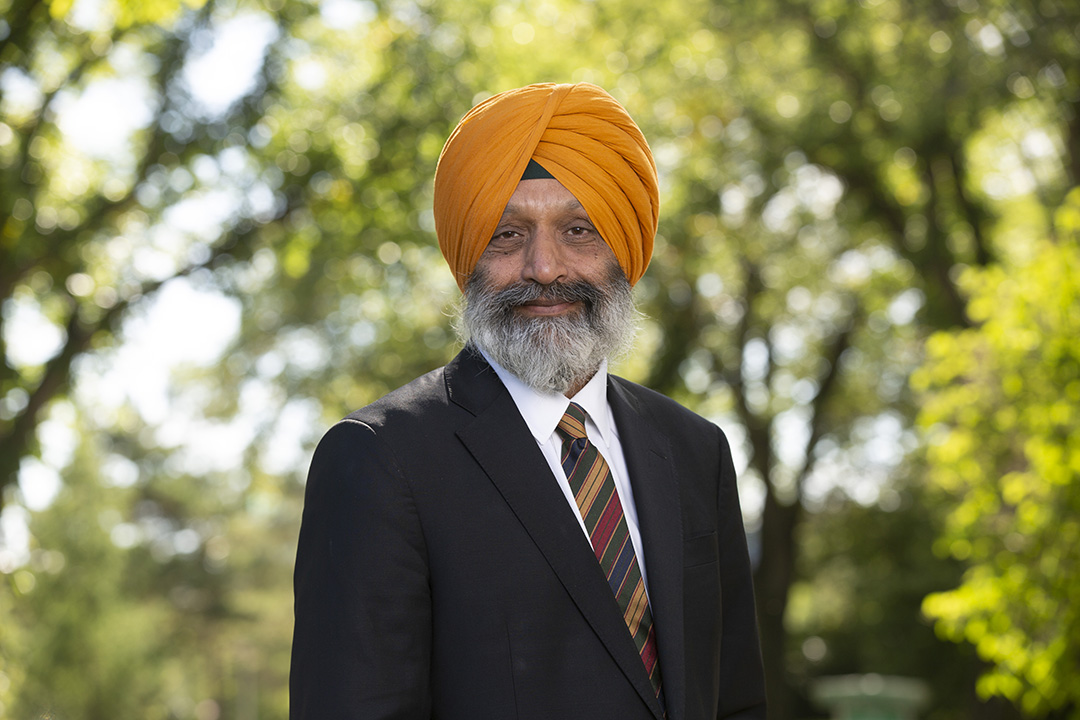
Dr. Baljit Singh chosen to lead USask Vice-President Research Office
SASKATOON – Following an extensive national and international search, Dr. Baljit Singh, a highly accomplished veterinary researcher, educator and administrator, will join University of Saskatchewan (USask) President Peter Stoicheff’s leadership team as vice-president research, effective February 1, 2021.
By USask Research Profile and ImpactSingh, who spent 17 years at USask, including as associate dean of research for USask’s Western College of Veterinary Medicine from 2011 to 2016, is currently dean of veterinary medicine at the University of Calgary. He will succeed Karen Chad who has served as USask vice-president research since 2008, and who has agreed to stay on in the role until Jan. 31, 2021.
“I am thrilled that Baljit will be returning to our campus to assume this critical role for our university and province in driving outstanding research and innovation as one of Canada’s top 15 research universities,” said Stoicheff.
“Well known across campus for his collaborative, passionate and inspiring approach, he brings to the role a wealth of research and leadership experience and expertise that will guide our strategic research, scholarly and artistic work endeavours as we continue to be the university the world needs.”
Singh’s formal education includes a Bachelor of Veterinary Science and Animal Husbandry, and Master of Veterinary Science from Punjab Agricultural University in Punjab; a PhD from the University of Guelph; and post-doctoral training at Texas A&M University and Columbia University, New York. He has also obtained credentials as a veterinarian in Canada and the United States.
Singh’s research has focused on cell and molecular biology of lung inflammation, work for which he has been awarded nearly $11 million in funding since 1999. A fellow of the American Association of Anatomists, he has received the Outstanding Veterinary Anatomist Award from the American Association of Veterinary Anatomists, as well as the Pfizer Award for Research Excellence. He is a fellow of the Canadian Academy of Health Sciences, one of the highest honours for health research and teaching in Canada.
At USask, Singh led an NSERC-CREATE “One Health” research program into food safety, infectious disease control, and public policy, training students from more than 20 universities in Canada and other countries, and building international collaborations. He is the author or co-author of more than 100 peer-reviewed journal articles and books, and has supervised the research training of nearly 90 undergraduate, graduate and post-doctoral students.
An accomplished educator, Singh has also been awarded the 3M National Teaching Fellowship, the highest teaching honour in Canada; the USask Provost’s Prize for Innovative Practice of Teaching and Learning; USask’s Master Teacher Award; and the Carl J. Norden Distinguished Teacher Award.
“The story of my academic work and personal life is deeply linked to Saskatchewan, so I am truly honoured to be appointed to the role of vice-president research and grateful for this opportunity to return to the University of Saskatchewan,” Singh said.
“This university provided me with excellent opportunities for growth as an academic and a leader. Working with colleagues across campus, these opportunities included interactions with outstanding mentors, engagement with integrated planning, execution of large research and teaching projects, and participation in development of some of the most advanced research infrastructure of any Canadian university. This infrastructure and cadre of leading researchers and thinkers at USask are delivering the knowledge that the world needs to address complex social, environmental and biomedical issues, and I look forward to helping to further their work.”
He added, “Sensitivity of the university to the needs and aspirations of marginalized communities locally and globally has deeply influenced me and my work. I am deeply committed to the process of Indigenization and advancing education and research through collaboration with Indigenous scholars and communities.”
-30-
For more information, contact:
Victoria Dinh
USask Media Relations
306-966-5487
victoria.dinh@usask.ca

